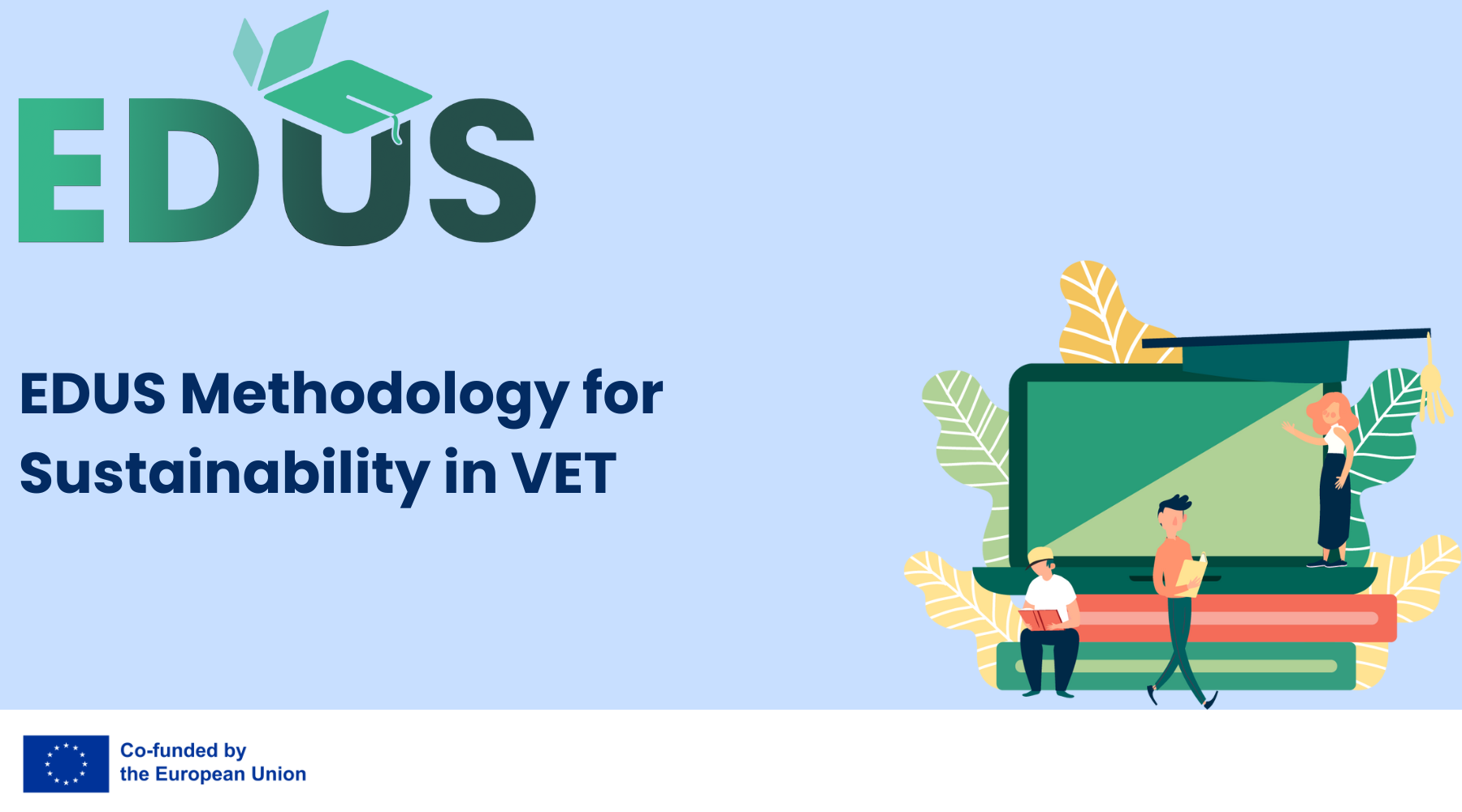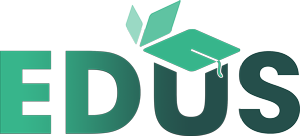
EDUS Methodology for Sustainability in VET
09/30/2025 Carla Martinez
Written by Stefanía G. Kristinsdóttir
The EDUS project is funded by Erasmus+ and led by Aalborg University with partners Einurð, Sineglossa, Geoss, and Cibervoluntarios. Einurð led the development of the training methodology, which will be published on our website shortly. It translates the EDUS Framework into practical guidance for vocational education and training (VET), positioning trainers as facilitators and co-designers of learning geared toward real sustainability challenges across disciplines.
Grounded in the EDUS triad of Planet, People, and Prosperity, Creativity, Connectivity, and Technology serve as enablers; the methodology connects course-level teaching and institutional practice with GreenComp, the EU sustainability competence framework (Bianchi, Pisiotis, & Cabrera Giraldez, 2021). It draws on the New European Bauhaus self-assessment method, which emphasizes beauty, sustainability, and inclusion and provides indicators and tools for holistic appraisal (Lourenço et al., 2024).
Three tried-and-tested pedagogies anchor the approach. Problem-Based Learning engages learners in investigating complex, real-world problems and crafting actionable solutions (Savery, 2006). Co-Creation-Based Learning extends collaboration into shared authorship with trainers, students, peers, and stakeholders, embedding dialogue, equity, and community relevance (Co-Creating Welfare, n.d.). Experiential Learning (Experiencing – Reflecting – Thinking – Acting) links theory with practice through fieldwork, simulations, and technology that supports data use, prototyping, and ethical reflection (Kolb, 1984). Together, these methods are aligned with the EDUS Framework and Self-Assessment Grid, emphasizing formative reflection.
EDUS Methodology offers sector-specific examples for construction, textiles, healthcare, social care, IT, and tourism. In short, EDUS reframes sustainability learning from “learning about” to “learning to act,” combining classical pedagogies with contemporary European frameworks so teachers can co-create credible, locally relevant pathways to sustainability with their students.
The forthcoming online release will include EDUS Methodology and a Toolbox to support pilot and knowledge sharing across a European community of practice.
Additional reading and references:
Bianchi, G., Pisiotis, U., & Cabrera Giraldez, M. (2022). GreenComp: The European sustainability competence framework. Publications Office of the European Union. https://publications.jrc.ec.europa.eu/repository/handle/JRC128040
Co-Creating Welfare. (n.d.). Co-Creating Welfare: New curricula, education methods, and training courses for professionals in the welfare sector. https://ccw.southdenmark.eu/
Kolb, D. A. (1984). Experiential learning: Experience as the source of learning and development. Englewood Cliffs, NJ: Prentice-Hall.
Lourenço, P., Maloutas, T., Santamouris, M., Widera, B., Ansaloni, F., & others. (2024). A practical guide to the New European Bauhaus self-assessment method and tool (K. Gkatzogias, E. Romano, & P. Negro, Eds.). Publications Office of the European Union. https://publications.jrc.ec.europa.eu/repository/handle/JRC139118
Savery, J. R. (2006). Overview of Problem-Based Learning: Definitions and Distinctions. (“Overview of Problem-based Learning: Definitions and Distinctions”) Interdisciplinary Journal of Problem-Based Learning, 1(1), 9–20. https://doi.org/10.7771/1541-5015.1002
Institute of Experiential Learning. (n.d.). What is experiential learning? https://experientiallearninginstitute.org/what-is-experiential-learning/






